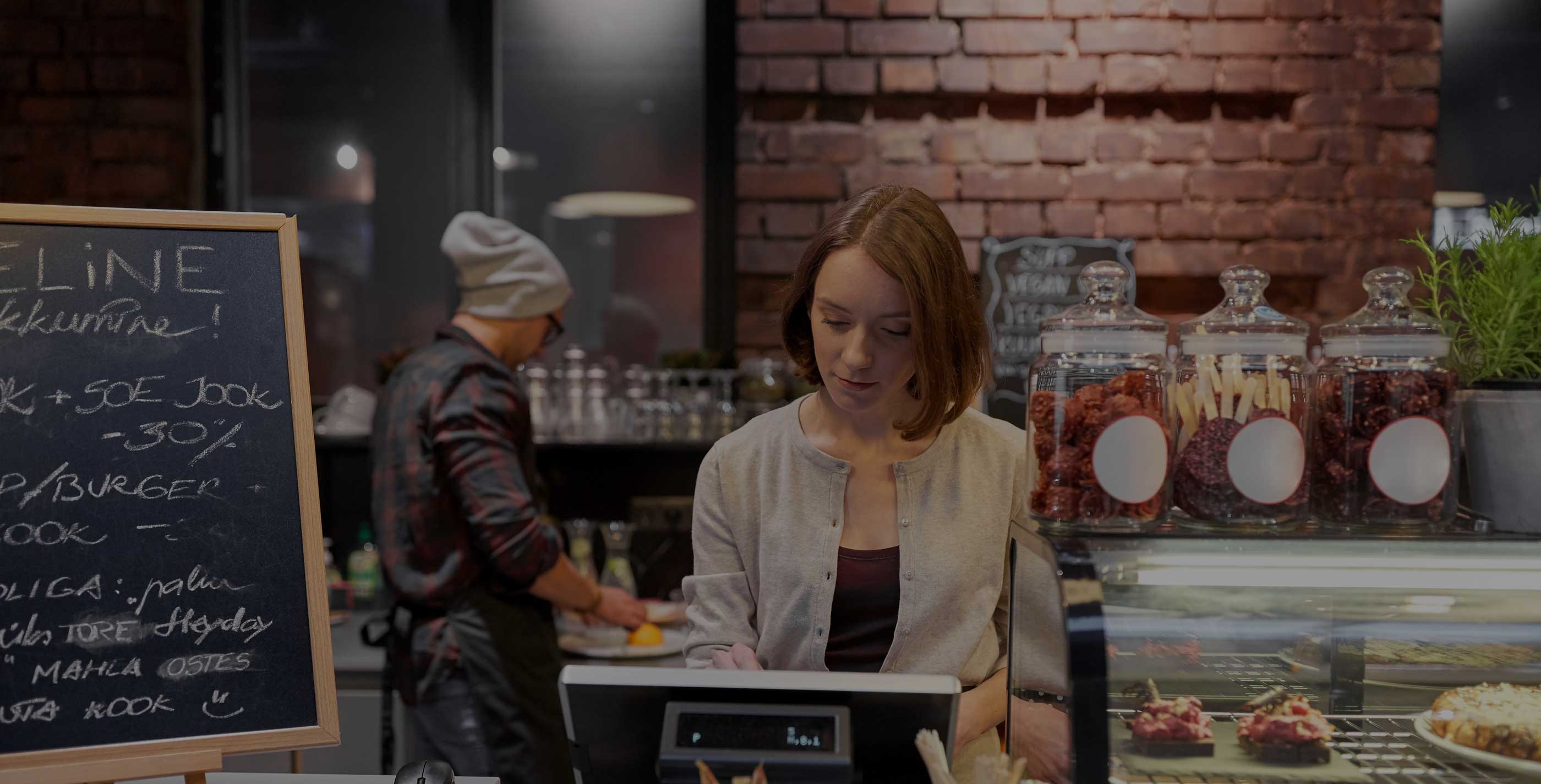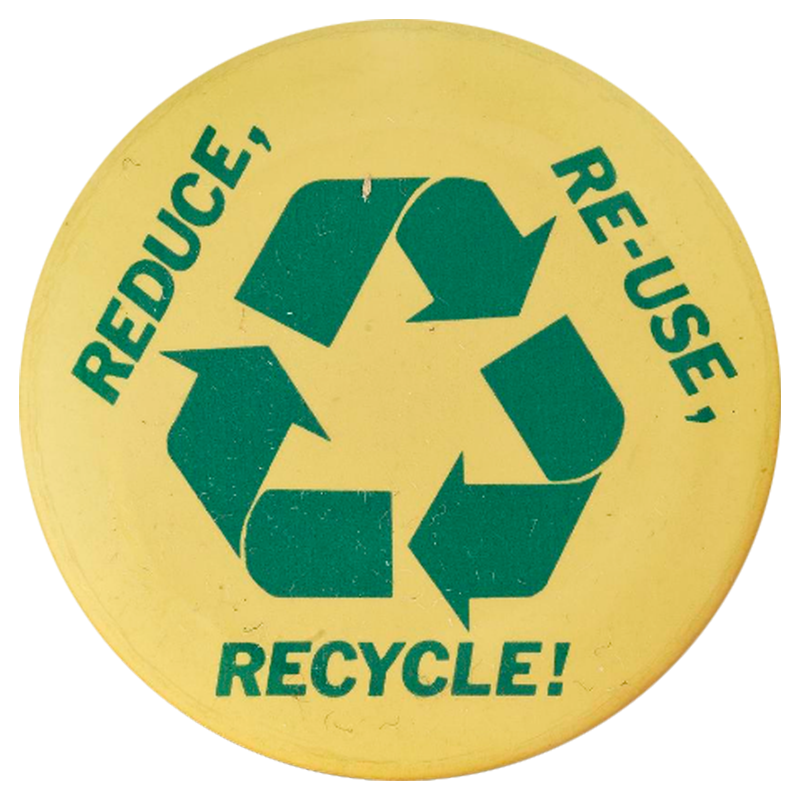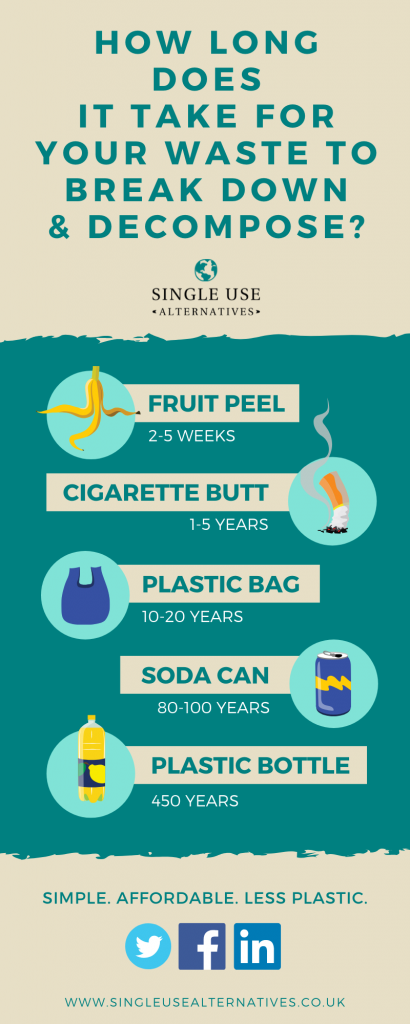
The 5 Rs of Waste Management: Refuse, Reduce, Reuse, Recycle, Rot
We’ve all heard of recycling. The prospect of not separating out our plastic waste from our paper, or not splitting our tin cans from glass bottles, sounds ridiculous. Until relatively recently, this simple weekly task was the sum total of most people's contribution to waste reduction. Thanks to television shows such as ‘Blue Planet’ and ‘War on Plastic’, sustainability and reducing waste has been thrust well and truly into the mainstream.
The tenets of recycling have been in society's consciousness for decades. The phrase ‘Reduce, Reuse, Recycle’ was first used in a logo created for the USA’s first National Earth Day in 1970 (featured left). The 3 R’s became more widely accepted, where in 1976 were adopted as part of a government campaign to tackle the nation’s approach to waste management.
So why has Reduce, Reuse, Recycle not worked?
Despite the concept of recycling being common knowledge, taught to children of all ages, the world over - the last fifty years have had a devastating impact on our planet. Our relationship with consumption and waste as a whole has been left relatively unchecked, the consequences of which are dire. When plastic bottles from the UK are found in garbage heaps in Malaysia - it is clear that our system is broken. Apathy feeds on the feeling of futility this could inspire - why should we recycle when our waste is simply being shipped halfway round the world, to pollute someone else's watercourse?
What needs to change?
If the aim is to reduce the amount of single use plastics being used and increase the amount being successfully recycled, two things need to happen:
Firstly, by the widespread adoption of the 5 r’s, society's perception of and approach to managing their own waste can be changed for the better.
Secondly, the infrastructure for waste management laid out by local authorities needs to provide more up-to-date, consistent recycling processes and make them more available
The degree of work involved in aligning to these two criteria is undoubtedly huge, but if we are to reverse the impact consumption on a mass scale is having on our planet, immediate measures must be taken.
What are the stages of the 5 Rs?
The order in which these practices should be carried can differ depending on whose writing you’re reading, but whether you rot, refuse, reduce, reuse, and repurpose or vice versa - each stage of the process feeds into another in some form or other.
Here at Single Use Alternatives, we tend to begin with refusing avoidable single use plastics and non-recyclable products wherever you possibly can. If you attempt this, you will already have gone some way to reducing your plastic waste, but by reusing plastic packaging to the point it can no longer be used - you’ll have reduced your consumption even further.
When the water bottles and plastic bags you’ve been carrying round for weeks and weeks are so battered and twisted that they no longer offer a viable solution for holding contents - it's time to recycle those pesky petrochemical products in the correct way. Leading us on to the fifth and final R - rot all those uncooked food scraps and disposable products that are compostable, either at home or through an industrial composting service.
Making the right choices
We can’t bet on grand gestures made by politicians to change our impact on planet Earth. Instead, we should count on the smaller, smart decisions made by everyday people on an everyday basis. Buy second hand clothes and household items, watch your portion size and reduce your food waste. Buy loose groceries, store dried foods in mason jars, switch to sustainable alternatives to coffee cups and disposables. These small decisions could save you money, and if we do them all together, we might just save the planet for future generations.


